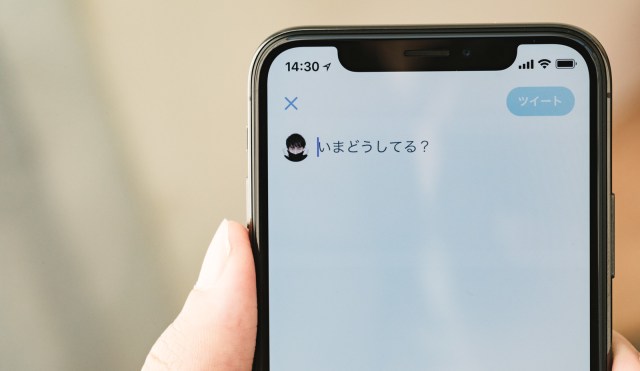
These new train safety ads tell travelers that any friends who’d drop you for a late response aren’t friends at all.
Your smartphone can do anything these days. Not only can it serve as a music player, it can be a portable games console and even a gateway to your next ninja tour guide. But with all this to offer, are people spending too much time on their phones? So much time that it could prove fatal?
Awareness campaigns for the dangers of walking while texting have cropped up in the most vital areas: public transport stations. One such sign was snapped by Japanese Twitter user @oohira0511 and shared with the online masses.
▼ “I think it’s great they put this up.” (translation of sign below)
これいいと思います。 pic.twitter.com/yYVUWHs3PJ
— 大平武洋🌗 (@oohira0511) November 2, 2018
The striking sign features nothing but black text on a yellow background, instantly commanding attention from any nearby passengers. The text itself reads:
“Whatever you lose out on because you didn’t reply straight away, it’s definitely not a real friendship.”
The announcement cuts right to the root of why we’re tempted to stay plugged in to our phones. So many of us want to be reliable for our friends and family, and to be there exactly as we get a call or text. The ad goes on to implore us to stop texting while walking, not only in Japanese and English but also in Mandarin Chinese, Cantonese and Korean, too.
At the bottom of the announcement, the names of all four of the major phone suppliers in Japan are written: au, Docomo, Softbank and Y! Mobile. Clearly this is a great enough issue that they were all eager to sign off on it in the hopes of reaching more people.
Responses to the ad tried to dissect the exact meaning of the simple slogan, especially the term “straight away” which is rather subjective.
▼ An author pulled out the graphs to break down the linguistics of “straight away.”
即レスって何分以内?#図解作成の基本(#棒グラフ)
— 吉澤準特|6/1出版『ロジカルシンキングと問題解決の実践講座』 (@juntoku_y) November 3, 2018
10-20代は「3分以内」
30代以上は「5分以内」
がボリュームゾーンですね。
ちなみに、高校生は1時間以内に既読、既読から返事までのリードタイムは「10分以内」でないと、過半数が「反応遅い」と感じるようです。
社会人とは別世界。 pic.twitter.com/4wJxPp5kmL
“How many minutes does an “instant reply” take?
#SchematicIllustration (#BarChart)
People in their teens and 20s: “Within three minutes”
People in their 30s and over: “Within five minutes”While high school students will permit up to an hour for others to read their text before it feels late, once read the reply must come within a 10-minute window or else be dismissed as late.
High school students are really operating on another plane compared to your average worker!”
Others came to criticize the statement, as to their mind it didn’t cover enough ground.
▼ “I already know my friends won’t care if I reply late. But the ad itself concedes you miss out on something, right? Just because you’re not losing out on a friendship doesn’t mean there isn’t something at risk. Implying that you could feasibly miss out on something and then not expanding on it just feels sloppy and half-hearted to me.”
友情と呼ばないのは分かりました。
— 二代目げんさん (@2gen3) November 3, 2018
「失われるものはない」とは書いていないので、何かが失われると行ってますね。
その何かが何であるかまで書いて、取るに足りないものであることまで示さないと中途半端な感じを受けます。
However it definitely held its own kernel of truth for at least one salaried worker.
▼ “I know this ad is for people using LINE and other texting services. But I really want to force my boss, who sends an e-mail and then calls me after two minutes to make sure I got it, and customers who e-mail right as I’m about to sign off and expect a reply by next morning, to read this ad.”
これは、LineなどのSNSの事を言っているつもりなんでしょうけど、
— rt19010101 (@rt19010101) November 4, 2018
・メールを書いて、2分後には確認の電話をする(させる)上司
・定時ぎりぎりにメールを送ってきて、翌朝までに返答がほしいという自称客
にも、これを送りつけてやりたいな。
It’s true that there’s a time and a place for phone usage, but when you take Japan’s famously busy atmosphere and work-life balance and combine it with a device that can address a lot of needs at once, we’ll probably need a more direct method to tackle this dangerous problem than some bright ads. That said, shoving and pushing offenders probably isn’t a great solution, either.
Source: Twitter/@oohira0511
Top image: Pakutaso

 A message from Japanese train station toilet paper: Don’t stare at your smartphone while walking
A message from Japanese train station toilet paper: Don’t stare at your smartphone while walking You can send email from payphones in Japan?!? We try the technology trick that shocked the nation
You can send email from payphones in Japan?!? We try the technology trick that shocked the nation Optus pulls Australian commercial from YouTube following complaints from Japan
Optus pulls Australian commercial from YouTube following complaints from Japan Fan-made Ghibli Caption Maker lets you put your own spin on famous anime scenes
Fan-made Ghibli Caption Maker lets you put your own spin on famous anime scenes Japanese police officer comes up with cute reminder to help people not get scammed over the phone
Japanese police officer comes up with cute reminder to help people not get scammed over the phone McDonald’s new Happy Meals offer up cute and practical Sanrio lifestyle goods
McDonald’s new Happy Meals offer up cute and practical Sanrio lifestyle goods All-you-can-drink Starbucks and amazing views part of Tokyo’s new 170 meter-high sky lounge
All-you-can-drink Starbucks and amazing views part of Tokyo’s new 170 meter-high sky lounge McDonald’s Japan releases a pancake pie for new retro kissaten coffeeshop series
McDonald’s Japan releases a pancake pie for new retro kissaten coffeeshop series Super Nintendo World expansion gets delayed for several months at Universal Studios Japan
Super Nintendo World expansion gets delayed for several months at Universal Studios Japan Studio Ghibli glasses cases let anime characters keep an eye on your spectacles
Studio Ghibli glasses cases let anime characters keep an eye on your spectacles More foreign tourists than ever before in history visited Japan last month
More foreign tourists than ever before in history visited Japan last month It’s Japanese commercial time! Watch the best ads from 2017 in one glossy 4K video
It’s Japanese commercial time! Watch the best ads from 2017 in one glossy 4K video Legendary Melon Bread by Tokyo Banana returns after 20-year absence【Taste Test】
Legendary Melon Bread by Tokyo Banana returns after 20-year absence【Taste Test】 Dogs now allowed on Catbus! Ghibli Park vehicles revise service animal policy
Dogs now allowed on Catbus! Ghibli Park vehicles revise service animal policy McDonald’s Japan goes old-school with new Showa-era Kissa Mac sweets lineup【Photos】
McDonald’s Japan goes old-school with new Showa-era Kissa Mac sweets lineup【Photos】 Disney princesses get official manga makeovers for Manga Princess Cafe opening in Tokyo
Disney princesses get official manga makeovers for Manga Princess Cafe opening in Tokyo Starbucks reopens at Shibuya Scramble Crossing with new look and design concept
Starbucks reopens at Shibuya Scramble Crossing with new look and design concept Beautiful new Final Fantasy T-shirt collection on the way from Uniqlo【Photos】
Beautiful new Final Fantasy T-shirt collection on the way from Uniqlo【Photos】 Is the new Shinkansen Train Desk ticket worth it?
Is the new Shinkansen Train Desk ticket worth it? Foreign English teachers in Japan pick their favorite Japanese-language phrases【Survey】
Foreign English teachers in Japan pick their favorite Japanese-language phrases【Survey】 Japanese convenience store packs a whole bento into an onigiri rice ball
Japanese convenience store packs a whole bento into an onigiri rice ball We try out “Chan Ramen”, an underground type of ramen popular in the ramen community
We try out “Chan Ramen”, an underground type of ramen popular in the ramen community Studio Ghibli releases Kiki’s Delivery Service chocolate cake pouches in Japan
Studio Ghibli releases Kiki’s Delivery Service chocolate cake pouches in Japan Japan’s bone-breaking and record-breaking roller coaster is permanently shutting down
Japan’s bone-breaking and record-breaking roller coaster is permanently shutting down New definition of “Japanese whiskey” goes into effect to prevent fakes from fooling overseas buyers
New definition of “Japanese whiskey” goes into effect to prevent fakes from fooling overseas buyers Our Japanese reporter visits Costco in the U.S., finds super American and very Japanese things
Our Japanese reporter visits Costco in the U.S., finds super American and very Japanese things Studio Ghibli unveils Mother’s Day gift set that captures the love in My Neighbour Totoro
Studio Ghibli unveils Mother’s Day gift set that captures the love in My Neighbour Totoro Foreign passenger shoves conductor on one of the last full runs for Japan’s Thunderbird train
Foreign passenger shoves conductor on one of the last full runs for Japan’s Thunderbird train Domino’s Japan now sells…pizza ears?
Domino’s Japan now sells…pizza ears? New Japanese KitKat flavour stars Sanrio characters, including Hello Kitty
New Japanese KitKat flavour stars Sanrio characters, including Hello Kitty Kyoto creates new for-tourist buses to address overtourism with higher prices, faster rides
Kyoto creates new for-tourist buses to address overtourism with higher prices, faster rides Sales of Japan’s most convenient train ticket/shopping payment cards suspended indefinitely
Sales of Japan’s most convenient train ticket/shopping payment cards suspended indefinitely Sold-out Studio Ghibli desktop humidifiers are back so Totoro can help you through the dry season
Sold-out Studio Ghibli desktop humidifiers are back so Totoro can help you through the dry season Japanese government to make first change to romanization spelling rules since the 1950s
Japanese government to make first change to romanization spelling rules since the 1950s Ghibli founders Toshio Suzuki and Hayao Miyazaki contribute to Japanese whisky Totoro label design
Ghibli founders Toshio Suzuki and Hayao Miyazaki contribute to Japanese whisky Totoro label design Doraemon found buried at sea as scene from 1993 anime becomes real life【Photos】
Doraemon found buried at sea as scene from 1993 anime becomes real life【Photos】 Tokyo’s most famous Starbucks is closed
Tokyo’s most famous Starbucks is closed One Piece characters’ nationalities revealed, but fans have mixed opinions
One Piece characters’ nationalities revealed, but fans have mixed opinions We asked a Uniqlo employee what four things we should buy and their suggestions didn’t disappoint
We asked a Uniqlo employee what four things we should buy and their suggestions didn’t disappoint Princesses, fruits, and blacksmiths: Study reveals the 30 most unusual family names in Japan
Princesses, fruits, and blacksmiths: Study reveals the 30 most unusual family names in Japan Japanese condom maker creates CG video of two T. rexes humping 【Video】
Japanese condom maker creates CG video of two T. rexes humping 【Video】 Thai university trials “mobile phone lane” in effort to increase student safety
Thai university trials “mobile phone lane” in effort to increase student safety Student tries to advertise his university club at station, accidentally uses a picture of himself
Student tries to advertise his university club at station, accidentally uses a picture of himself Junior high kid has lucky escape, learns why walking while using a smartphone isn’t a good idea
Junior high kid has lucky escape, learns why walking while using a smartphone isn’t a good idea Trailer released for live-action sequel to Studio Ghibli anime Whisper of the Heart【Video】
Trailer released for live-action sequel to Studio Ghibli anime Whisper of the Heart【Video】 Japanese university says your girlfriend might dump you, other harsh truths in recruiting ad
Japanese university says your girlfriend might dump you, other harsh truths in recruiting ad Thousands oppose Osaka Metro’s plan to change major stations in giant boats and fabric swatches
Thousands oppose Osaka Metro’s plan to change major stations in giant boats and fabric swatches “Daaangerrrr!” Fukuoka town experiments with new road markings
“Daaangerrrr!” Fukuoka town experiments with new road markings English mistake makes Kyoto the enemy of the world
English mistake makes Kyoto the enemy of the world Not everyone hates school uniforms: Japanese Twitter shows us why
Not everyone hates school uniforms: Japanese Twitter shows us why Clever ad publicly shames commuters in real-time for “smartphone walking” in train station【Video】
Clever ad publicly shames commuters in real-time for “smartphone walking” in train station【Video】 “No seeds, please.” Pigeons in Japanese anti-birdfeed posters show startling self-awareness
“No seeds, please.” Pigeons in Japanese anti-birdfeed posters show startling self-awareness Japanese Twitter barks with laughter over dogfood ad’s bizarre choice of photo
Japanese Twitter barks with laughter over dogfood ad’s bizarre choice of photo Easter egg tribute to late Nintendo president Satoru Iwata found in Pokémon Ultra Sun and Moon
Easter egg tribute to late Nintendo president Satoru Iwata found in Pokémon Ultra Sun and Moon Japanese companies banned from locking cellphone SIM starting this autumn
Japanese companies banned from locking cellphone SIM starting this autumn
Leave a Reply